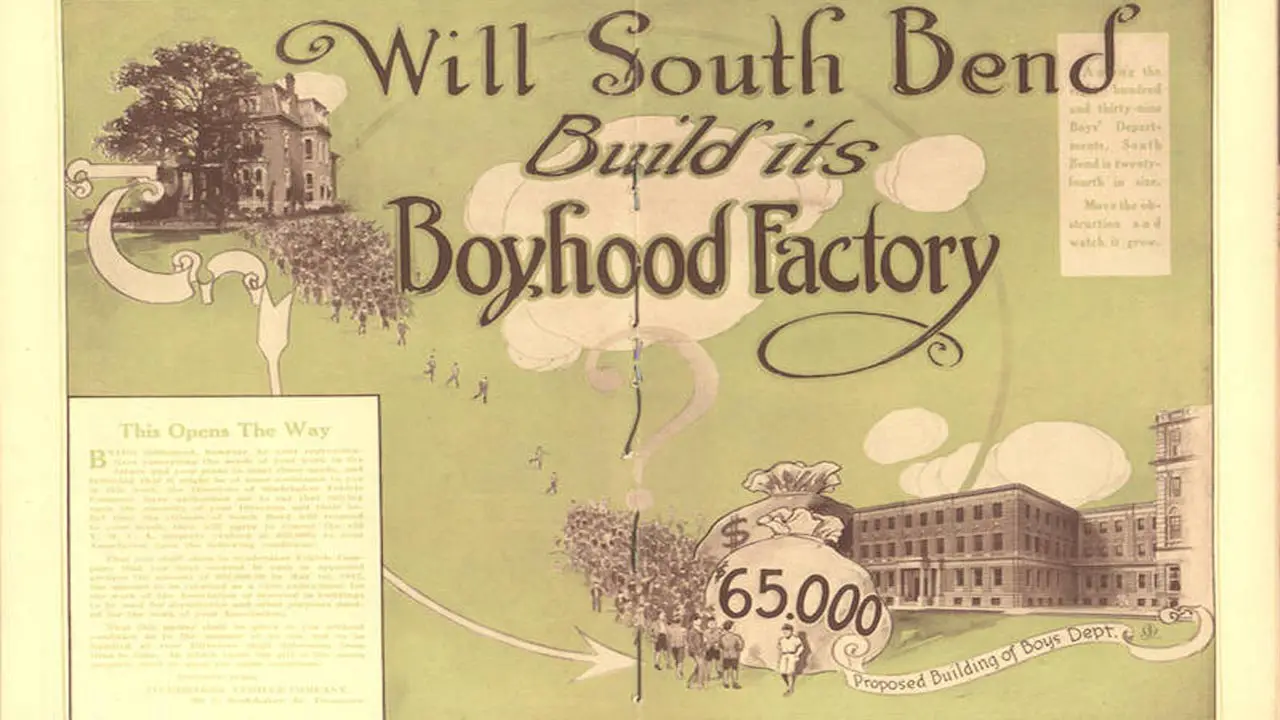Americans were obsessed with gender throughout most of the 19th and early 20th century. Men were the rugged breadwinners, women were the matronly homemakers, and our whole nation would succeed or fail by the rigid adherence to those distinct and sacred roles.
Some historians speculate that our obsession with gender was induced by the rapid change from a rural, farming society to an indoor, industrial one. Bustling factories bred interconnected streets with automatic horseless carriages careening down at speeds previously unheard of — upwards of 20 miles an hour. Plus, cities had so many illicit temptations for a man: taverns, brothels, gambling. City life was quite the contrast from mere decades before, when most men lived out on the prairie, spending every moment of every day chopping wood and hunting game to ensure his family’s survival.
The very civilization that man created was a threat to manhood itself.
In response, the Young Men’s Christian Association was founded in London in 1844 to improve, “the spiritual condition of young men engaged in the drapery, embroidery, and other trades.” They provided clean, safe housing for young men moving from rural areas into the cities to take factory jobs. The idea spread, and soon YMCAs (and their female analog, YWCAs) sprung up in almost every city across Europe and North America.
South Bend had one too. First organized in 1882 with Clem Studebaker and Schuyler Colfax as its first President and Vice President, it offered housing, reading rooms, lectures, and religious classes three times a week. In 1902, the Studebakers helped finance a new, modern building (on Main Street near Jefferson that, sadly, no longer exists) whose purpose was to, “improve the condition of the city… so that every boy will be better equipped to gain for himself a more perfect manhood, mentally, morally, socially, and spiritually.” It was to be “a manhood factory in the center of South Bend’s greatest industries,” teaching boys sports, swimming, and spirituality.
Today, as the meme of the metrosexual gives way to the hairier and more rugged lumbersexual, our culture’s concepts of masculinity are again in flux. Still, boys are freer than ever to be who they want to be – whether swinging an axe, playing with dolls, or perhaps both.
Sources:
“A Manhood Factory in the Center of South Bend’s Greatest Industries :: Local History.” Accessed January 27, 2015. http://michianamemory.sjcpl.org/cdm/compoundobject/collection/p16827coll3/id/37/rec/1.
“YMCA History – 1800 to 1860s.” Accessed January 27, 2015. http://www.ymca.net/history/1800-1860s.html.
“YMCA.” Wikipedia, the Free Encyclopedia, January 23, 2015. http://en.wikipedia.org/w/index.php?title=YMCA&oldid=643455758.
Image credit: St. Joseph County Public Library, Michiana Memory Collection, michianamemory.sjcpl.org.
About the Author: George Garner is a graduate of Kutztown University (Pennsylvania) with a bachelor’s degree in history and the Cooperstown Graduate Program (New York) with a master’s degree in museum studies. Garner gained experience in museum administration, exhibitions, education, and collections care at such well-known institutions as the National Baseball Hall of Fame and Museum and the Chesapeake Bay Maritime Museum in St. Michael’s, Maryland. Garner currently works with the Studebaker National Museum and the Indiana University South Bend Civil Rights Heritage Center.







